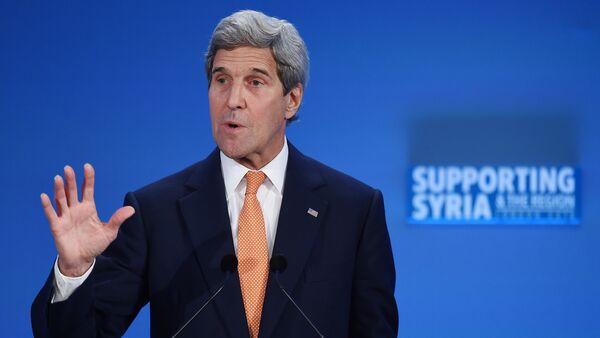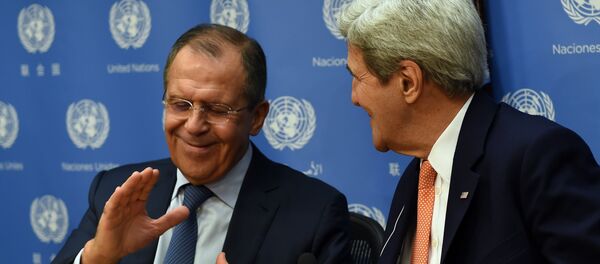The Russo-American deal on Syria has triggered controversy in the US with Pentagon officials signaling skepticism regarding the agreement.
"The agreement that Secretary of State John Kerry announced with Russia to reduce the killing in Syria has widened an increasingly public divide between Mr. Kerry and Defense Secretary Ashton B. Carter, who has deep reservations about the plan for American and Russian forces to jointly target terrorist groups," The New York Times reported on September 13.
In accordance with the deal the US Department of Defense would have to share information with Moscow on Daesh targets in Syria if the ceasefire holds for seven days.
"I'm not saying yes or no. It would be premature to say that we're going to jump right into it," Lt. Gen. Jeffrey L. Harrigian, commander of the United States Air Forces Central Command, said as cited by the media outlet.
For its part, on Monday Foreign Policy magazine drew attention to the fact that senior officials at the Pentagon were expressing serious doubts regarding the efficiency of the agreement struck by Washington and Moscow.
There appears to be a rift between Kerry and Carter over Syria, reflecting the ongoing conflict within the Obama administration. Previously, Carter has repeatedly opposed the Secretary of State's initiatives to establish a working relationship with Moscow.
However, in an apparent response to the New York Times' publication, Carter voiced support for the State Department's agreement with Russia on Syria.
"Well, the ceasefire as of today looks like it is largely being held. This is very important, I commend Secretary of State Kerry for getting us an agreement, which if it's implemented, will ease the suffering of the Syrian people, which is very important to all of us, very important to the president," the Secretary of Defense told a press briefing in Texas on September 14.
Although the Pentagon Chief has confirmed his commitment to implement the agreement, tensions continue to simmer over the Syrian ceasefire regime.
On Thursday, commenting on the process of ceasefire regime implementation in the Syrian Arab Republic, Ministry of Defense of the Russian Federation expressed its concerns about the US-led "moderate opposition's" unwillingness to abide by the US-Russia brokered agreement.
"Only the Syrian army has been observing the ceasefire regime within these three days of implementation of the agreements while the US-led 'moderate opposition' has been increasing the number of shellings of residential quarters," Russian Defense Ministry's statement published on its Facebook page reads.
"Moreover, it appears that 'verbal curtain' of Washington is aimed at hiding the nonfulfillment of the US obligations. First of all it refers to separation of formations of 'moderate opposition' from terrorists," the statement says.
Commenting on the July attempts by Kerry to strike a deal with Moscow on Syria, Cohen suggested that "the party of war" and most notably Carter, could have thrown a wrench in the US-Russian negotiations.
Indeed, in mid-July the US and Russia announced an initial agreement to coordinate airstrikes against Daesh and al-Nusra Front in Syria. However, the negotiations soon stalled.
The question remains open whether or not "the party of war" in Washington will upset the US-Russian applecart in Syria again.




